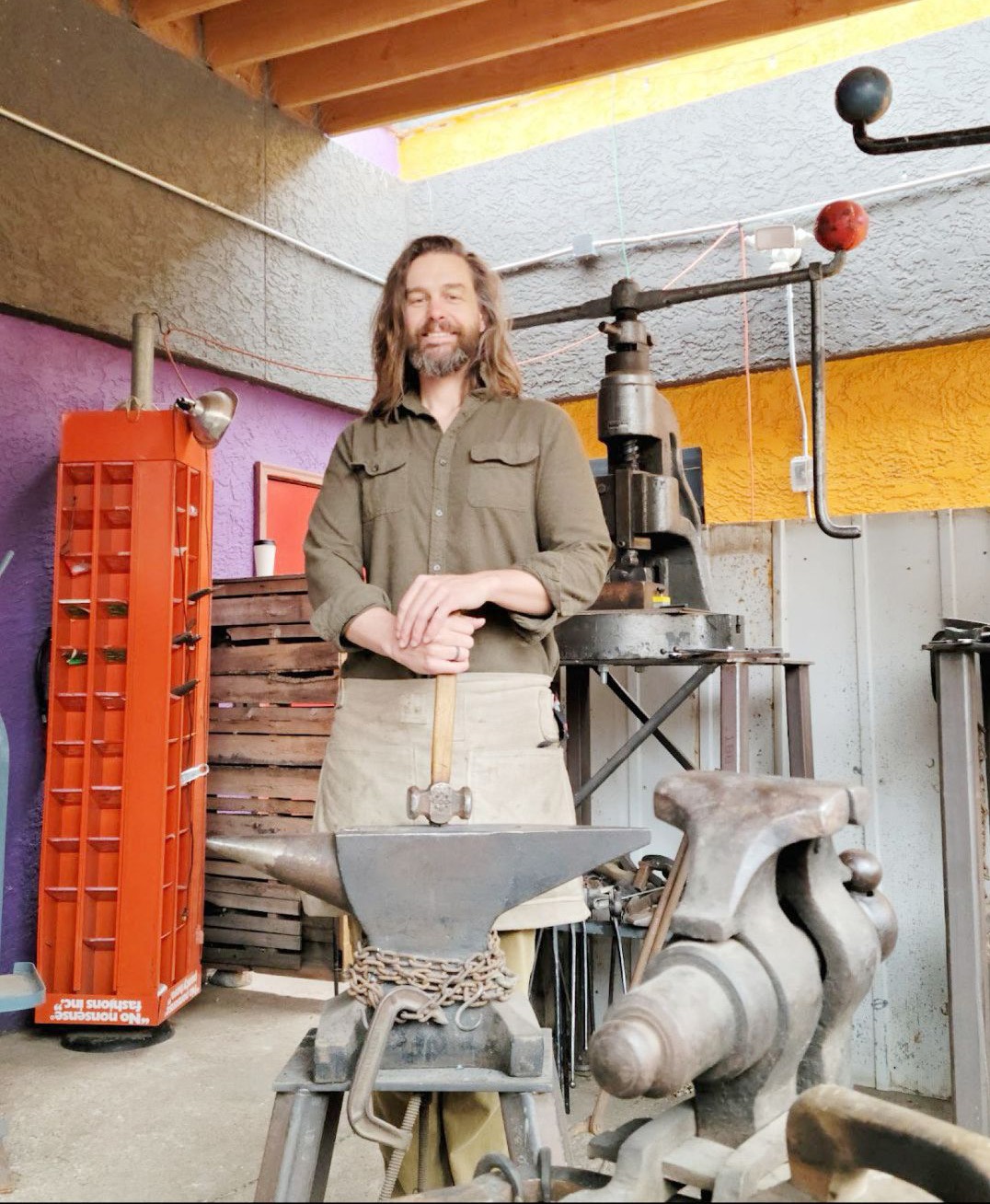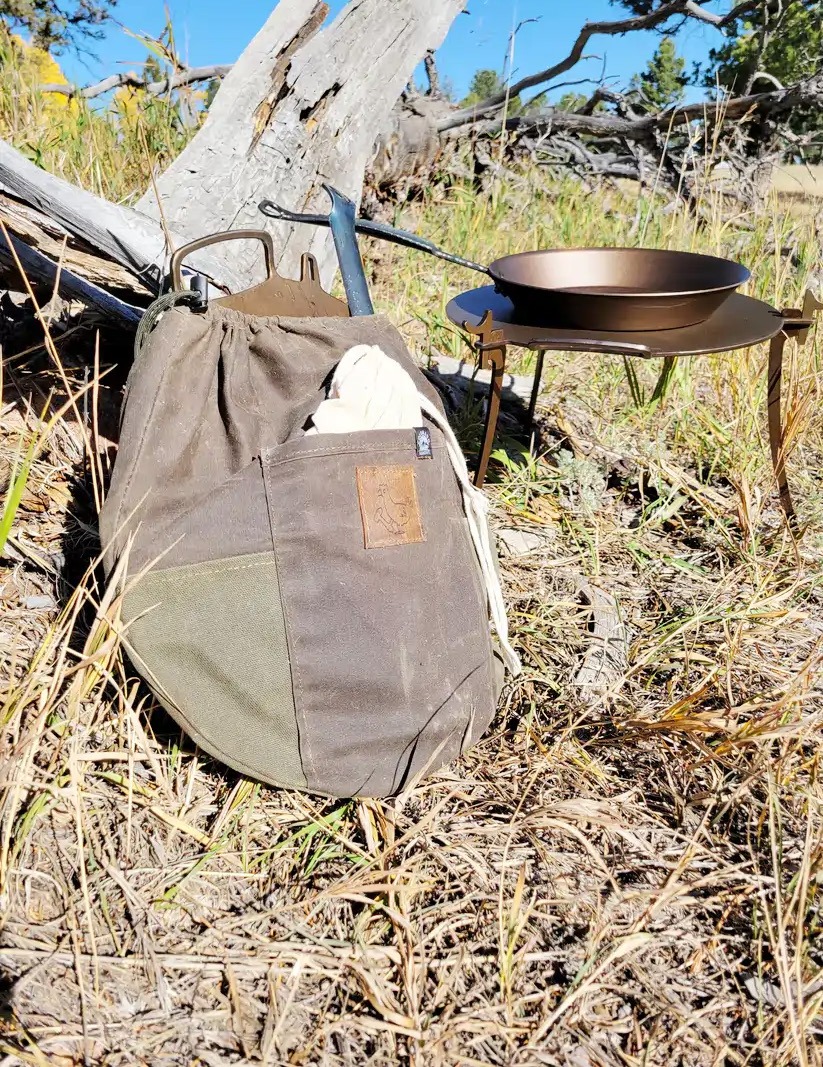In the town that owns the weirdness it’s characterized by, no place quite encapsulates the creative, quirky spirit of Manitou Springs quite like the Manitou Arts Center. A local staple for nearly four decades, the MAC offers classes, workshops and creative spaces to the community along with a series of galleries to house the works of creatives across the Pikes Peak Region and beyond.
When I moved to Colorado Springs now three years back, I yearned for a space like the Manitou Arts Center. Instead, I created alone, isolated in my apartment. When I finally discovered the space a year into living in the region, I kicked myself for not discovering the power of its community-binding nature sooner. In the spirit of ensuring no one makes the same mistake I did when I was new to our ever-growing city, each week of January the Pikes Peak Bulletin will highlight a MAC artist and their respective makerspace, kicking the series off with a profile of glass artist Jannine Scott, and one of the MAC’s longest running gallery spaces, the First Amendment Gallery.
Abbey Soukup
MAC Month: Blacksmith David Bradley forging solutions with functional art

Local blacksmith David Bradley is solving problems with his functional art and cookware, created at the Manitou Art Center (MAC).
Mainly self-taught in the craft, Bradley moved from Ohio to Colorado Springs nurturing his newfound talent of metal craftsmanship. He found the MAC and began helping to build their outdoor blacksmith shop.
“I originally got involved because I was looking for a makerspace when we moved here, and I didn’t want to build my own shop, because I wanted to be in the community more. I was super excited that something like [the MAC] existed and had welding and tools I could use,” Bradley said.
Three years later, the blacksmith area is a functional creative space where Bradley operates his business, Colorado Skillet Company – alongside his business partner Ken Sharp who practices metal spinning – and certifies fellow community members interested in blacksmithing themselves.
He said learning to work with metal opened his eyes to the possibilities and believes it can do the same for anyone who’s interested in learning how to work with the medium.
“You can heat metal and shape it, or bend it … It’s something you don’t see very often if you’re a fabricator or a welder or something, and you’re welding stuff together,” he said. “But when you forge it, it changes your perspective, and now you see it as like a soft material that’s workable and you can and there’s so many possibilities after that. You can do and make just about anything.”
And his anything happens to be cookware. An avid outdoorsman and someone who enjoys cooking, Bradley said what he saw in the potential of his blacksmithing craft was the ability to make cookware that made sense to him, fixing problems within the functionality of pieces mass-produced and readily available.
“I like cooking, especially camp cooking. When we were back in Ohio, we would have these fishing campouts and stuff, and we cooked a lot. I just got to a point where I was using all this cookware and knew I could make way better stuff,” Bradley said. “Cookware, to me, is one of the most functional things. If I make a skillet, and I gift it to somebody, I know they’ll use it every day. I like to make stuff that people are going to use.”
Bradley proudly calls the skillets the company creates some of the best on the market, all locally crafted at the MAC.
 The Colorado Skillet Company wares are made of carbon steel, which its website explains, “is much lighter and more responsive than traditional cast iron, but seasons, cooks and cleans the same way.” The online catalog offers several sizes of skillet and the Blacksmith’s Griddle, a multi-purpose cooking surface that can be set over camp stoves or adjust to use as a pizza stone in your camper or home oven.
The Colorado Skillet Company wares are made of carbon steel, which its website explains, “is much lighter and more responsive than traditional cast iron, but seasons, cooks and cleans the same way.” The online catalog offers several sizes of skillet and the Blacksmith’s Griddle, a multi-purpose cooking surface that can be set over camp stoves or adjust to use as a pizza stone in your camper or home oven.
Bradley said the skillets he makes are designed for functionality, longevity and sustainable everyday use – unlike what is commonly available.
“The stuff sold at the big box stores, it’s designed to make a profit, to be created in the cheapest way possible. And a lot of times that really screws up the designs, because the handles are shaped poorly. They don’t fit in your hand. They’re awkward. Or the pan itself is just cheaply made, and it’s not very good in general,” Bradley said. “What the MAC has allowed me to do is launch this craft business with a low enough overhead to be able to create products that are actually good and sell enough of them to support my work.”
In 2024, Bradley said Colorado Skillet Co. sold approximately 100 cookware pieces. In 2025, he hopes to push 600. Looking even further into the future, he hopes to produce and sell thousands.
“It’s cool because once it’s off and running, I can do it full-time, then I can start making a lot more products to complement all the cookware. And then you have, like, this whole camp cooking and home cooking line of stuff. That’s where I’m trying to go,” Bradley said, “I think it’s gonna be interesting to see over the next couple of years how it pans out.”
“Pans” out? That’s an apt way for a cookware blacksmith to put it.
Learn more at ColoradoSkillet.com.

